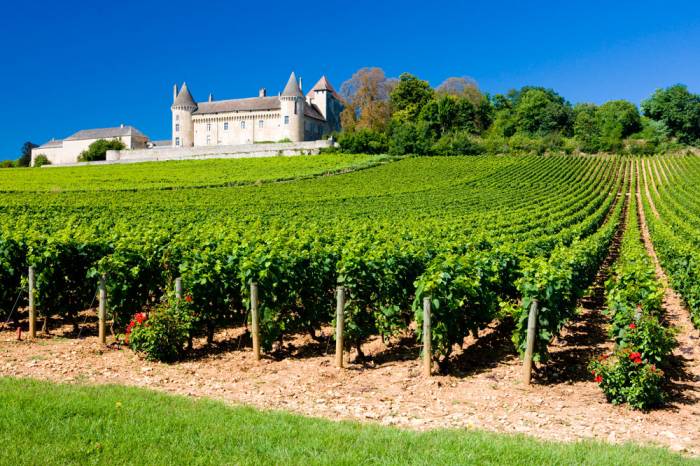France Pulls 25 Copper-Based Vineyard Products, Distributors Warn of Price Hikes and Limited Alternatives
Winegrowers face stricter rules and shrinking options as Anses bans and restricts popular copper treatments across the country
2025-11-19

This summer, the French Agency for Food, Environmental and Occupational Health & Safety (Anses) made significant decisions regarding copper-based plant protection products. These changes are now affecting both winegrowers and distributors across France. The agency withdrew 17 copper products from the market, allowing a transition period for their sale and use. Eight other products were banned for use in vineyards, while two—Heliocuivre and Champ Flo Ampli—faced strict new restrictions. Distributors are now adjusting their product lines to meet the evolving needs of wine producers.
Marine Gineste, technical manager for Soufflet Vigne, explained that the products affected by these bans and restrictions were among the most popular on the market. Dominique Navereau, head of vineyard operations at Ax’Vigne in Loir-et-Cher, expressed concern over the loss of Kocide and Vegelia Bordeaux mixture. He noted that these products were widely used due to their effectiveness and regulatory status.
The new rules allow the remaining stocks of these products to be sold until January 15, 2026, and used throughout the next growing season. However, distributors are already searching for alternatives that comply with regulations and still serve winegrowers’ needs.
Charles Lallement, technical manager at Stahl Vigne in Marne, said he will focus on simple-to-use products like Bordeaux mixtures, though he noted that few remain available. A sales representative in Burgundy said his company will prioritize high-quality Bordeaux mixtures and combinations of copper hydroxide and oxychloride, such as Grifon and Cuprocol Duo. These can be used during flowering and allow slightly higher copper doses per application compared to Heliocuivre and Champ Flo. He also recommended Yucca, an oxychloride product that can be applied up to eight times per year.
At Charrière Distribution, which operates in Gard, Bouches-du-Rhône, and Drôme, technical manager Jacques Oustric is preparing to replace Kocide. He explained that growers often used this hydroxide product in combination or alternation with other copper forms. Oustric expects that combinations of hydroxide and oxychloride will become more important, along with Nordox 75 WG (copper oxide) and Bouillie Bordelaise RSR Disperss. These products have relatively flexible usage conditions: Nordox 75 WG requires a five-meter buffer zone near water but has no maximum number of applications or minimum interval between treatments. Bouillie Bordelaise RSR Disperss has similar rules but is limited to five applications per year.
Navereau said his company is not planning immediate changes to its offerings because disease pressure was low this year and they still have inventory to sell.
Some copper products survived Anses’s review but now face tough restrictions. For example, Champ Flo and Heliocuivre can no longer be applied in a “smoothed” manner (lissage), must have at least seven days between applications, and require workers to wear gloves in treated vineyards until harvest. Oustric believes these conditions may make the products unviable unless exceptions are granted. Gineste argued that while the restrictions complicate use, some growers will continue with these products because they release copper ions quickly—a feature valued by small producers. Larger operations may switch to other options due to the stricter rules.
With 25 copper-based specialties removed from the market or heavily restricted, suppliers warn of possible price increases if demand concentrates on a few remaining products. Lallement pointed out that only two combinations of hydroxide and oxychloride remain available; if demand surges, prices could rise further. The cost of copper itself has also increased in recent years.
Romain Dandois, portfolio manager at Nufarm, said his company was surprised by the strict conditions imposed on Champ Flo Ampli. Nufarm plans to reduce production in 2026 due to high distributor stocks and regulatory uncertainty but hopes for lighter restrictions after submitting additional toxicological data to Anses.
The changes come as French winegrowers face ongoing challenges from disease pressure in vineyards and increasing regulatory scrutiny over plant protection products. Distributors are working quickly to adapt their portfolios while monitoring both supply chain impacts and regulatory developments that could affect future product availability and pricing.
Founded in 2007, Vinetur® is a registered trademark of VGSC S.L. with a long history in the wine industry.
VGSC, S.L. with VAT number B70255591 is a spanish company legally registered in the Commercial Register of the city of Santiago de Compostela, with registration number: Bulletin 181, Reference 356049 in Volume 13, Page 107, Section 6, Sheet 45028, Entry 2.
Email: [email protected]
Headquarters and offices located in Vilagarcia de Arousa, Spain.